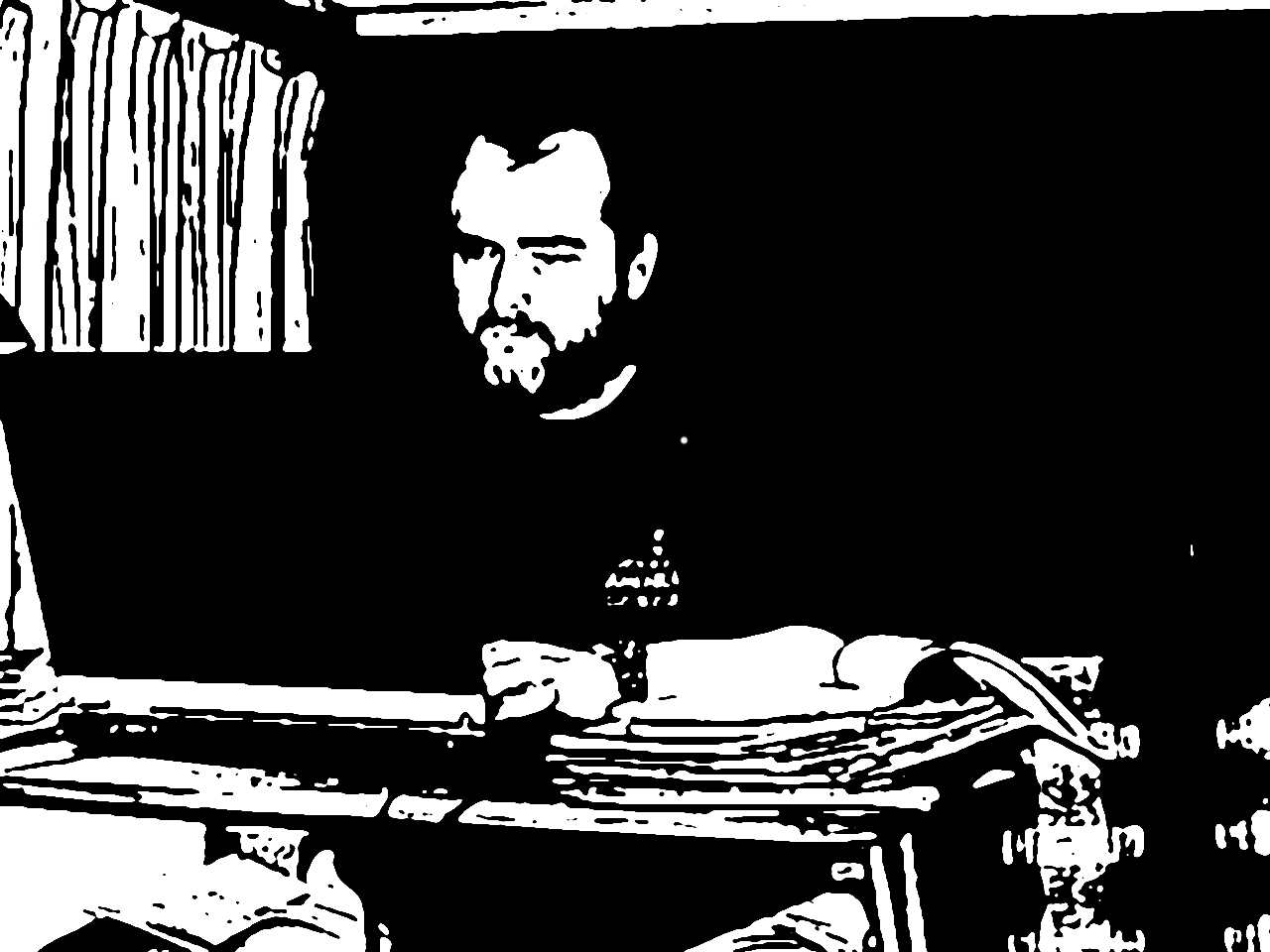ASK & DISCUSS
INDEXTransition from TV into Film work...
12 years, 2 months ago - Perry O'Halloran
Hi Shooters.
Firstly I wanted to introduce myself and say hello. Although I've attended one of the excellent panel discussions in the past this is my first time signing up with the site, so apologies also if this post is in the wrong section.
I'm Perry and I've spent the last several years working my way up through the UK TV industry. Sadly I was always much more interested in film, and starting out as a runner simply assumed that once you'd learned enough in TV you'd naturally progress into working in film. I soon found this isn't entirely the case and having progressed to the role of assistant producer, last year I finally became disenchanted with the television industry and decided to break away and give it a go in film. Over the last year I've had the opportunity to put my skills and experience to use by producing and directing a fair bit of corporate work, but I'm still having trouble trying to figure out my way into film production. I know there's never a definitive answer for these things, but I thought I'd put it to the experts and see if there's anything I may be missing.
Ideally, like most, I'd like to learn the art of film directing. I realise that my TV-producer background and corporate-directing experience don't entitle me to anything at all, and I'm not too proud to begin again from the bottom and learn as a runner on-set as I did before. But I can't be the first person whose worked in TV looking to make the transition into UK film. I'm just having a little trouble finding guidance or advice on what I'd be best doing from here, hopefully putting to use the experience I've gained. Even Creative Skillset were a little unsure. Anyway, I'm open to all and any suggestions.
Thanks for reading,
Perry.
Only members can post or respond to topics. LOGIN
Not a member of SP? JOIN or FIND OUT MORE
12 years, 1 month ago - Andrew Rowe
It sounds like Perry is talking about the Film Industry, with a capital F and I, rather than the no budget / shorts scene. Although it maintains a largely separate existance, the film industry is very much like the TV industry (but much, much smaller). Low/no budget work tends to lead to more low/no budget work, and needs to have value in its own right rather than being seen as a means to an end - it's extremely unlikely to get you into the mainstream film industry.
There is no easy 'way' or 'method' of gaining access. If there were, then everyone would take it. It's worth considering that the UK film industry is tiny - perhaps a dozen properly funded films being made at one time, and even half of those will be "low budget" (albeit in a different sense to Shooting People "low budget"!). And there are are hundreds (thousands?) of people clamouring at the door to be let in - there's no shortage of overskilled, intelligent, talented, hard working, determined people so these are minimum requirements rather than the keys to the studio.
Without knowing someone who can give you a helping hand, you're left with Skillset's trainee entrant schemes and firing off CV's to production co-ordinators and heads of department. If you do any TV drama, you may well meet crewmembers who also work on films - make friends with them, and they might put in a word.
I made the transition from TV to film by stepping down - more than once. I went from boom operating on soaps to working as a trainee on drama; and a few years later from boom operating on drama to assisting on films (via a Skillset 'advanced' course which no longer exists). It kind of worked, except I now work on blockbusters (not my cup of tea, which is why I'm still an SP member!). http://www.imdb.com/name/nm1328816/?ref_=fn_al_nm_1
What I'd really recommend is hanging on to your current paid work, which is after all related to film. If you are unsatisfied in the TV industry, you will probably be unsatisfied in the film industry - you will still be a cog in the machine. If creativity is at the core of your wish to be involved in films, then - as the other Andrew suggested - low budget SP/Mandy filmmaking has its advantages (jump straight in as a director). But it probably won't pay the bills...
12 years, 2 months ago - Perry O'Halloran
Thank you Andrew. Both your advice and the video have inspired me hugely. I'm glad you mentioned 'you don't need anyone's permission'. That's something I try my best to remember, and it helps to be reminded every now and again. I can agree from experience on a majority of what you said regarding TV work. There is without a doubt a constant atmosphere of hierarchy and ego, often without any subtlety.
I suppose there's only one thing for it - write, film and create at every possible opportunity. In the past I've used a lot of websites such as Production Base or The Unit List for finding TV work. Are there any resources you could suggest for finding regular job updates specific to film? Making more things myself will undoubtedly help me learn, but I'm also anxious to get as much experience on active productions as I can to see the professionals at work and pickup some tips along the way.
12 years, 2 months ago - Andrew T. Wright
Hi Perry,
I made the transition. As you've found out the two are completely different beasts. In my experience TV is more hierachical, constricted and to coin a recent Mike Figgis phrase more like a "Club" where the right school tie dictates your career aspirations. The trade publication 'Broadcast' also conducted a survey in relatively recent times that showed that sexism, ageism, bullying and little or no pay at junior/entry levels is the norm.
I've found that film, whilst fraught with its own issues (mainly financial - how to get it) is much more free. Of course if you want a regular wage TV is the arguable route to go but for creative freedom and being able to actually do what you want to do (make a film) then film is the way.
There are thousands of films (no/low budget, indies and bigger budget) being made all over the place and I guess you'd have to start putting yourself "out there" or simply just do it yourself. You don't need anyone's permission and that's the key. If you want to direct, then direct. What you don't know, you'll learn pretty quickly and you won't need a film school to teach/constrict you.
It's in your hands and if you don't believe me then hear it from the best - http://www.youtube.com/watch?v=ShjI4vtA4-E&list=TLMjWCHsKp3n4
12 years, 2 months ago - Jim Page
Hi Perry, coincidently i'm trying to do the same thing, though I'm an Editor. Let me know how you get on :)
12 years, 2 months ago - Andrew T. Wright
Hi Perry,
For film there is of course SP and the likes of Film & TV Pro - http://www.filmandtvpro.com/uk/ which for the most part are good resources. You can also try getting friendly and build relationships with other organisations such as Stellar Network, who although are primarily involved with setting up various schemes, courses and events in film has good links within the industry and could probably tell you who is doing what.
I have also found that checking out castings agencies is a good way to find out what is in the pipeline and which prod-cos are working on which productions. And directly associated with that route are of course actors; they are like bloodhounds when it comes to sniffing out work, so form relationships with them, which will also come in handy when you're casting your own film(s). It's all about networking.
I would also suggest that you don't downplay your experience in TV. Experience (and confidence) is a very salable commodity, so don't be afraid to use it. You don't have to run a banner ad saying 'TV' but rather emphasize your roles of 'AD' 'AP' etc.
Even on SP, once you cut through the bullshitters, there are some really great and extraordinary small prod-cos and filmmakers holding their own out there and making films. They might have micro budgets or less, but the good ones will always recognise that people need to be paid - even if its a token of a tenner. The point being that their attitude is right. And if you find you get on really well, you'll all want to work together again, go for bigger budgets and so on.
There are times when you have to weigh up the pros and cons of the no budget/expenses only gigs. Some are worthwhile (providing you get the credit or its a great team and great project) but I would set yourself a limit on how many "Work for free" gigs you're prepared to do and stick to it. If you've proved your worth, then you have to be paid. You might not initially get the "standard" rate so be prepared to negotiate and take it on a project by project basis. A letter of reference (as well as credits) from TV is worth its weight in gold and gives you credibility and others a certain expectancy that they will need to pay for you. So don't sell yourself short.
There is also the old fashioned way of picking up the phone and simply asking and if they can't help, you ask them if they could give you any leads. You'll find your contacts list grows pretty quickly and if you're a nice guy or come across as that, and are persistent then things will start to fall in place...eventually and you'll find your own niche.
There is no right or wrong way, there's just your way and you simply have to make people aware that you're here, available, experienced and "can do".
The bottom line is and to quote Scorsese (I think) is "Make your own industry".
From a personal POV: it starts with a script, so when you're making you own films, count the writer as an integral part of the team/crew and if you can pay the crew, pay the writer.
I hope that helps to some degree.




